The 15 Best Essential Oils for Total Healing
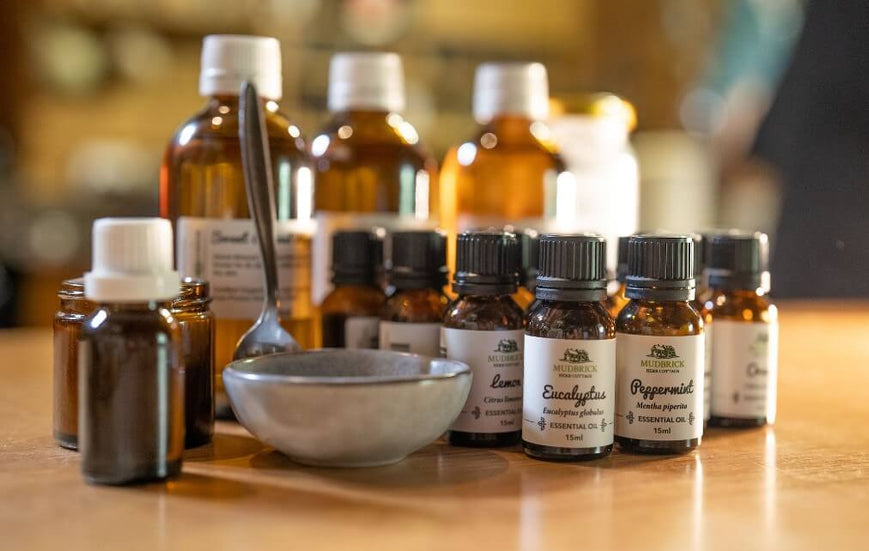
Discover the numerous physical and emotional benefits of essential oils, which can be used as natural cleaners, pain relievers, and sleep aids. Understanding which essential oils are the most effective and how to use them is key to reaping their full benefits. We'll cover the 15 best essential oils and highlight their versatility & healing power. We'll also give you practical tips on how to use them for a variety of purposes like aromatherapy, skincare, cleaning, and overall health & wellness.
Benefits of essential oils
Essential oils offer countless physical benefits, from fighting skin infections to repelling insects and relieving chronic inflammation, as evidenced by a 2020 study. They also have psychological and emotional benefits, like reducing anxiety and improving depression symptoms which can enhance your mental health and wellbeing.
Experience the full benefits of essential oils with diffusers, inhalation, topical mixtures, or homemade hair & skincare products.
15 of the best essential oils to use daily
1. Lavender - best overall

Lavender oil is a versatile, “do-it-all” essential oil. It can fight skin infections, reduce inflammation, alleviate depression symptoms, relieve stress, and much more. Additionally, you can pair lavender oil with 2-3 other essential oils without reducing it or the others’ effectiveness.
What it does
Lavender oil prevents bacterial growth and infections on minor burn wounds and bug bites. A 2016 study confirms that lavender boosts collagen production to promote wound healing.
Lavender has also been known to inhibit allergic inflammation and mucus accumulation in the airways, making it a popular oil for those with asthma or colds. Its calming properties help balance the body and mind, restoring your equilibrium. It can also help you fall asleep and improve sleep quality, even in those with insomnia.
How to use
-
For minor cuts and burns - Mix 3 or 4 drops of lavender oil with a teaspoon of carrier oil then dip a cotton ball into the mixture. Gently dab your cut or burn with the cotton ball to speed up the healing process and prevent infections. Even after it’s healed, this same technique can be used to reduce and even eliminate scarring.
-
For arthritis and muscle & joint pain - Apply it directly to the injured area with a roll-on bottle, mix with a carrier oil and add it to your bath, or massage the area directly with a lavender and carrier oil blend.
-
For chest congestion - Fill a bowl or pot with hot water and add a few drops of lavender oil to the water. Then place a towel over your face, bend over the bowl, and take a few deep breaths. This acts as a DIY vapour bowl, delivering the anti-inflammatory agents directly to your lungs.
-
For calming sleep - Add a few drops to your diffuser before bed or add 1-2 drops to a handkerchief or cotton swab and tuck into your pillow. Either way, you’ll sleep peacefully throughout the night.
2. Peppermint - best for digestive issues

What it does
Peppermint oil contains menthol, which has natural cooling properties that soothe skin irritation and itching. And if you’re looking for natural relief for stomach cramps, bloating, flatulence, and other IBS symptoms, peppermint oil is an excellent choice.
It’s also a common choice for relieving tension headaches and making homemade, non-toxic cleaning agents for your home.
How to use
-
For skin-related issues - Mix with a carrier oil and then gently apply to the affected skin.
-
For mental clarity - Add to a diffuser or drip some onto a light cloth and let it diffuse naturally while nearby.
-
For stomach aches - Mix with a carrier oil and rub your belly.
- For cleaning - Mix with vinegar to wipe down and disinfect surfaces around your home.
3. Lemongrass - best for massages
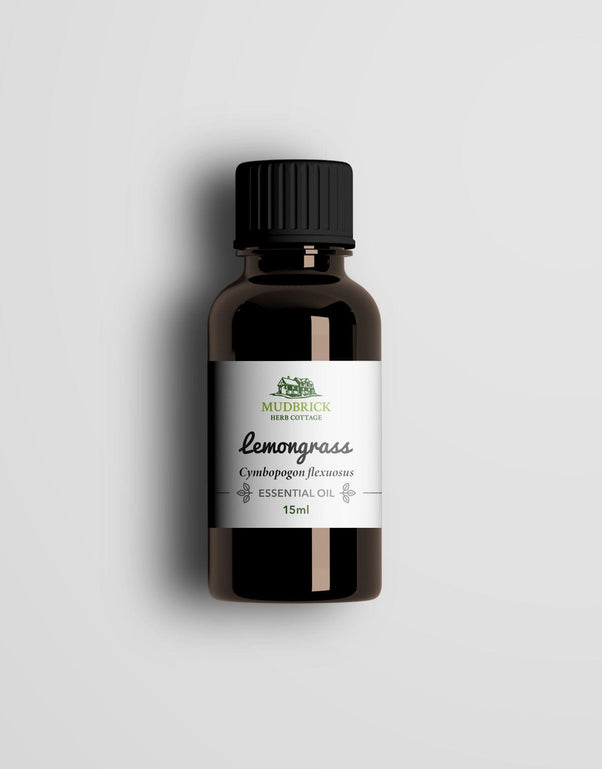
Lemongrass oil is a popular essential oil for sports therapy massages. A 2015 study confirms that weekly lemongrass oil massages can reduce diastolic blood pressure after three weeks of consistent application. It also has antifungal, anti-inflammatory, and antioxidant properties that help fight athlete’s foot and other fungal & bacterial growths.
What it does
Lemongrass oil causes blood vessels and skin tissue to contract, resulting in clearer, firmer skin. It also promotes blood circulation, reducing the appearance of varicose veins and decreasing inflammation in joints and muscles.
How to use
-
For skin - Mix with a carrier oil and then rub on the affected area to treat conditions like eczema & psoriasis. For general skincare and exfoliation, spread it evenly across your skin, avoiding sensitive areas like the face, neck, and groyne.
-
For joint and muscle treatment - Mix a few drops with a carrier oil and rub directly onto your aching muscles and joints to reduce pain and inflammation.
Explore other ways to use lemongrass.
4. Eucalyptus - best for colds and flus

Eucalyptus oil is a must-have for cold and flu season. Its antimicrobial and antiviral properties will help reduce the frequency and severity of common cold symptoms, keeping you healthy even as the seasons change.
What it does
You can add eucalyptus oil to a bowl of hot water and inhale the steam to alleviate a sore throat. Eucalyptus loosens phlegm and has antimicrobial properties that kill certain viruses and bacteria. According to a 2015 study, eucalyptus contains 1,8-cineole, which reduces mucus overproduction associated with COPD, rhinosinusitis, and bronchial asthma.
But you don’t have to wait until you’re sick to use it. Kill airborne germs before they reach you by adding a few drops to your diffuser or prepare a cleaning solution for germy surfaces like tables, chairs, door handles, and sinks.
How to use
-
For preventing sickness - Fill a spray bottle with 1 cup vinegar, ½ cup water, and 10-12 drops of eucalyptus oil. Shake well to combine the mixture; it won’t emulsify completely, but the droplets will be fine enough to effectively disinfect. Spray directly onto the dirty surface and wipe away the germs with a paper towel or antimicrobial cloth.
Double down during flu season by adding a few drops to your diffuser; the eucalyptus oil will kill the airborne cold and flu germs before they reach you.
- To treat the common cold and flu - Place a couple of drops on a handkerchief or tissue, then take a few deep breaths to clear your nasal passages. For overnight relief, place the tissue with a few drops of oil into your pillow case; you’ll wake up feeling refreshed!
5. Cedarwood - best for emotional balance
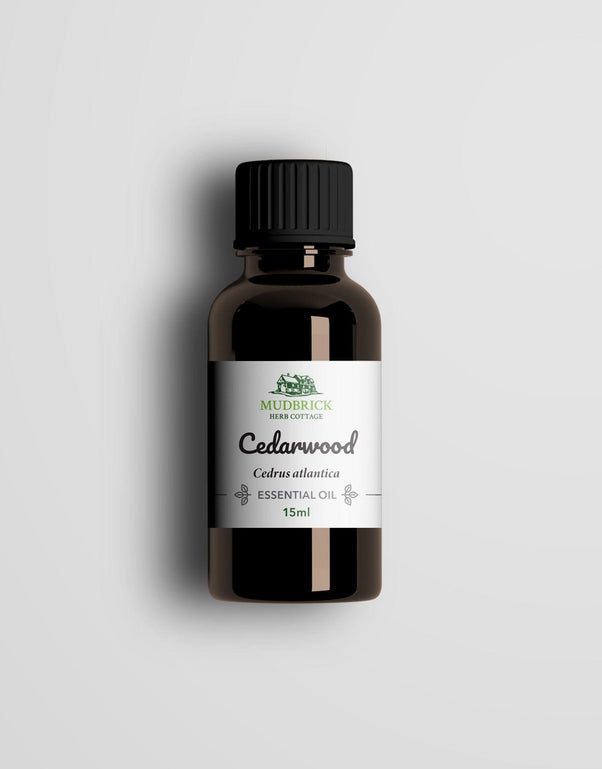
If you’re struggling with anxiety or can’t seem to find internal balance, cedarwood is the essential oil for you. It’s one of the most popular natural remedies for restoring emotional balance and relieving stress. It also has skincare, insect repellent, and decongestant properties, making it a great all-around essential oil.
What it does
Cedarwood oil has a calming effect and can relieve stress and anxiety. One of its major components, cedrol, is a sedative, meaning cedarwood oil can help you sleep. It also helps soothe the common cold and alleviate coughing and sore throat symptoms.
Cedarwood oil is also a natural insect repellent and can be used to treat dry skin, acne, dandruff, and hair loss when mixed with a safe carrier oil.
How to use
-
For emotional balance - When you need to find inner peace, cedarwood will help you get there. Add a few drops to your diffuser, a warm bath, or massage directly (with a carrier oil of course) into your temples, wrist, and chest to relieve anxious feelings.
-
For colds and flus - The most efficient way to treat cold and flu symptoms is via inhalation; apply a few drops to your diffuser for an aromatherapy session or add a few drops to a steaming bowl of water and breathe in the steam for a few minutes.
If you’re short on time, mix with a carrier oil and rub the topical application on your chest, neck, and back to absorb the healing properties through your skin.
-
To keep insects away - Add a few drops of cedarwood oil to your diffuser and set it in your indoor/outdoor space. Or for a homemade bug repellent, mix with a carrier oil and spray onto your skin, especially the exposed areas like your neck, ankles, and wrists.
- For skin and scalp - Dilute with your favourite carrier oil and apply directly to the treatment area, whether it’s your skin or scalp. For acne and dry skin, apply and let it sit for 20 minutes before washing it away. For hair growth or another hair condition, pair with a carrier oil and give yourself a scalp massage; you can also add it to your shampoo and conditioner.
6. Ylang ylang - best for relaxation
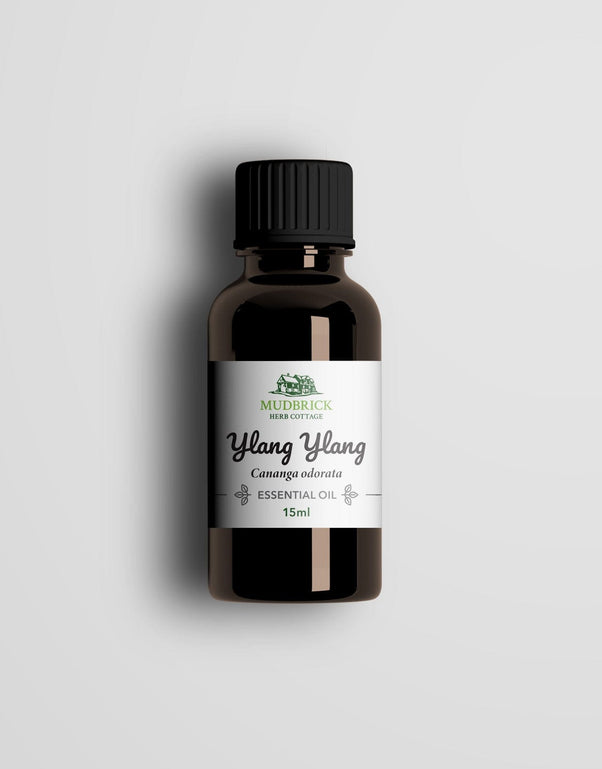
With an aroma described as sweet, sensual, and exotic, ylang ylang is too enticing not to add to your essential oil kit. It’s one of the most popular essential oils for relaxation, but has a number of other aromatherapy, skin & hair care, and insomnia uses.
What it does
Ylang ylang has a calming effect on the mind and body, reducing anxiety symptoms like sweating and rapid heart rate. According to a 2006 study, ylang ylang combined with lavender and bergamot reduces psychological stress symptoms and blood pressure.
Ylang ylang can also moisturise your skin, preventing acne growth. When used on your scalp, it prevents hair loss and promotes growth by regulating sebum production.
How to use
-
For relaxation - Add a few drops to the diffuser or vaporizer as you wind down for the night or whenever you feel the need to relax. To relax even more quickly, blend with a carrier oil and massage the topical mixture directly onto your temples, wrist, and chest.
- For skin and hair care - Mix a few drops of ylang-ylang oil with a carrier oil and massage the mixture onto your skin to prevent breakouts and improve the overall health of your skin. For hair care, apply the same mixture to your scalp 30 minutes before washing your hair, then wash out.
7. Frankincense - best for meditation

Frankincense has been used in medicines and embalming mixtures since pharaohs ruled Ancient Egypt, making it one of the oldest aromatics in the world. Now, it’s used in meditation sessions, skincare, and general healing.
What it does
Frankincense oil deepens your meditation, leading to long-lasting, positive changes in your brain. It hydrates your skin, reducing swelling and redness caused by acne. Additionally, frankincense has a rejuvenating effect that reduces the appearance of fine lines and wrinkles and helps wounds heal more quickly.
How to use
-
For meditation - Add a couple of drops to your diffuser before your meditation session. You’ll settle deeper into your meditation, enabling you to truly connect with your inner world and maximise your session.
-
For healthy skin - Mix with apricot oil (or another carrier oil of your choice) and massage gently onto your skin to relieve itchy or irritated skin and relieve fine lines and wrinkles.
- For healing - Mix a few drops of frankincense oil with a carrier oil and massage the mixture onto your chest and neck. This will open up the airways, helping you breathe easier. And as with most healing oils, frankincense is a great essential oil to add to your diffuser for a slow, controlled dispersal of healing agents.
8. Rosemary - best for cognitive function and brain health
Rosemary’s sharp, penetrating fragrance makes it the most popular essential oil for cognitive function, memory stimulation, and overall brain health. Whether you need to study for a big test, channel your focus at work, or just protect your brain’s longevity, rosemary is the herb you can trust to do it all.
What it does
Rosemary essential oil boosts cognitive function, improving memory, concentration, and mental performance. According to a 2013 study, “brain wave activities, autonomic nervous system responses, and mood states can all be modified with rosemary oil inhalation.”
It contains diterpenes, carnosol and carnosic acid, giving it potent antioxidant properties that protect the brain from cognitive decline.
How to use
-
For cognitive performance - Add to a steaming pot of water or your vaporizer to boost your cognitive function and increase alertness. Make it a part of your morning routine or add a diffuser to your home office to make sure you’re always functioning at 100%.
- For headaches and stress relief - Mix with a carrier oil and rub directly onto your forehead or temples.
9. Thyme - best for wound care

Thyme oil has antiseptic, antioxidant, and anti-inflammatory properties that fight infections and reduce pain. You can use it to treat skin abrasions, burns, and bites. Its antibacterial and anti-inflammatory properties make it an effective way to clear acne.
What it does
Thyme can speed up the wound-healing process. It contains antiseptic compounds such as caryophyllene, camphene and thymol that can disinfect cuts and reduce inflammation around wounds and insect bites.
This oil’s antibacterial properties make it an effective way to treat acne. Some studies have suggested thyme oil is a more effective acne treatment than benzoyl peroxide.
How to use
-
To heal wounds - After cleaning the wound with soap and water, apply a thyme and carrier oil mixture directly to the wound, using a clean cotton swab to gently spread it around. Cover with a bandage and re-apply the thyme mixture every time you change bandages.
- For healthy skin -. Dilute it with a carrier oil or add it to your daily moisturiser then apply to the treatment area
10. Geranium - best for skincare
Geranium oil is a calming substance made from pelargonium leaves. It can balance hormones and has anti-inflammatory and moisturising properties that make it ideal for skincare. It’s often called the “poor man’s rose oil” because of its similar smell and benefits.
What it does
Geranium balances oily and dry skin while eliminating dead skin cells. It acts as a natural exfoliant and can reduce signs of ageing. Additionally, you can use it to treat burns, wounds, ulcers, and athlete’s foot.
When used in a diffuser, vaporizer, or humidifier, geranium can reduce stress and promote relaxation. A 2018 study found that aromatherapy massages with geranium oil and almond oil mixtures reduced physical and mental symptoms related to PMS.
How to use
-
For skin - Pair 1-2 drops of geranium oil with 1 teaspoon of carrier oil and apply directly to acne, dermatitis, or other skin blemishes. Mix with a thick cream to treat burns, wounds, and other skin problems.
-
For aromatherapy - Add 2-3 drops of geranium oil to your diffuser to balance your emotions, reduce stress, and promote relaxation all while enjoying the fresh, floral scent.
- For women - Add 1-2 drops to a tissue or cotton ball and take a few deep breaths for nearly instant relief. The geranium will increase oestrogen levels, helping to alleviate menstrual cramps, mood swings, and appetite changes.
11. Lemon - best for homemade cleaning products

Lemon oil is a popular choice for homemade cleaning products due to its pleasant scent and antibacterial properties. It can relieve mental fatigue, ease nausea, and improve digestion.
What it does
Lemon contains limonene, a powerful antimicrobial agent. It’s effective at cleaning wood, appliances, kitchen utensils, sinks, and other surfaces. The invigorating fragrance of lemon oil promotes physical energy while boosting your mood and focus. It can also burn off warts and kill the virus that causes them.
How to use
-
For cleaning - Add 2-3 drops of lemon oil to a spray bottle with water, vinegar, or carrier oil, then spray to the surface you want to disinfect. Wipe away with a paper towel or cleaning rag.
- For an energy boost at work - For your home office, add a few drops to your diffuser in the mid-afternoon or whenever you start to feel fatigued for a quick boost. If you’re in the office with others, take a few-second inhale of the oil to power through the day.
- To remove warts - Use a cotton swab to dab undiluted lemon oil directly onto the wart. Repeat this process six times per day, covering with a bandage in between applications until the wart is gone.
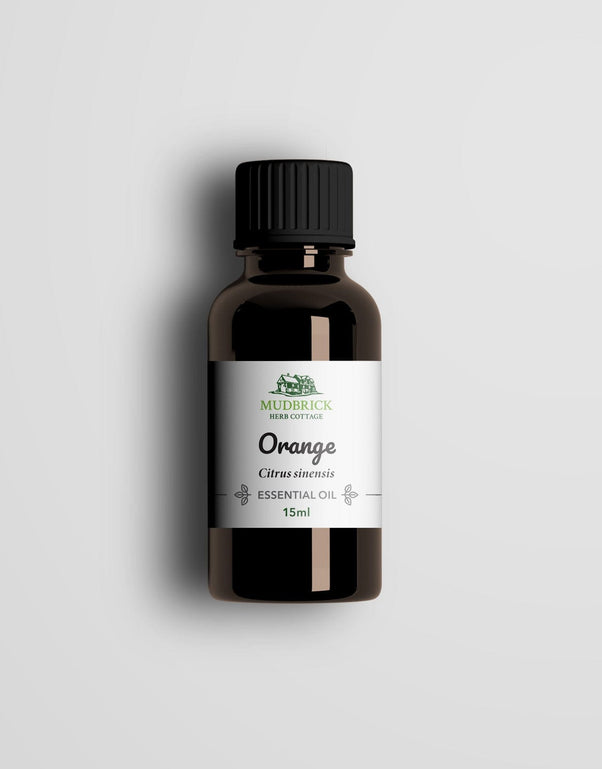
12. Orange - best for mood enhancement
There are few things better than a fresh orange on a hot afternoon. It’s enough to lift you out of an afternoon slump and provide the energy you need to finish your day. Orange oil is a concentrated version of that feeling, in addition to being an effective anti-anxiety treatment, cleaning solution, and digestive stimulant.
What it does
Like lemon oil, orange essential oil contains limonene, making it an popular ingredient in homemade cleaners. Limonene also reduces anxiety by lowering your heart rate and may increase your libido.
Orange essential oil stimulates the secretion of gastric bile, which can improve digestion and eliminate toxins.
How to use
-
For mood enhancement - Add a few drops to your diffuser whenever you’re feeling down, and within minutes you’ll feel as good as new, ready to win the day.
-
To clean - Mix with water or carrier oil in a spray bottle, spray the surface you wish to clean, then wipe away.
- To stimulate digestion - Pair with a few drops of carrier oil and rub directly onto your stomach.
13. Clove bud - best for toothaches

Clove bud oil has a rich history. From its popularity in Chinese medicine to protecting the Four Thieves during the Black Plague, clove oil has been used for oral care, improved digestion, and mental performance.
What it does
Clove bud oil can numb toothaches but it won’t cure them. It alleviates upset stomachs caused by the flu, food poisoning, or digestive issues. And according to a 2010 study, clove oil may also enhance memory and mental performance.
How to use
-
For oral care - Blend 3 drops of clove oil with 1 tbsp of carrier oil like olive oil. Then dip the cotton ball or cotton bud into the oil and place directly over the painful tooth, taking special care to avoid contact with your gums. It will reduce the pain for a day or so until you can visit the dentist.
-
To improve digestion - Add 3-4 drops to your diffuser and wait to feel the effects, you should notice relief in just a couple of hours.
- For mental performance - Mix with a carrier oil and apply the clove bud mixture to your skin for best results. For long-term stimulation over the course of the day, add a few drops to your diffuser.
14. Lemon myrtle - best for fighting germs
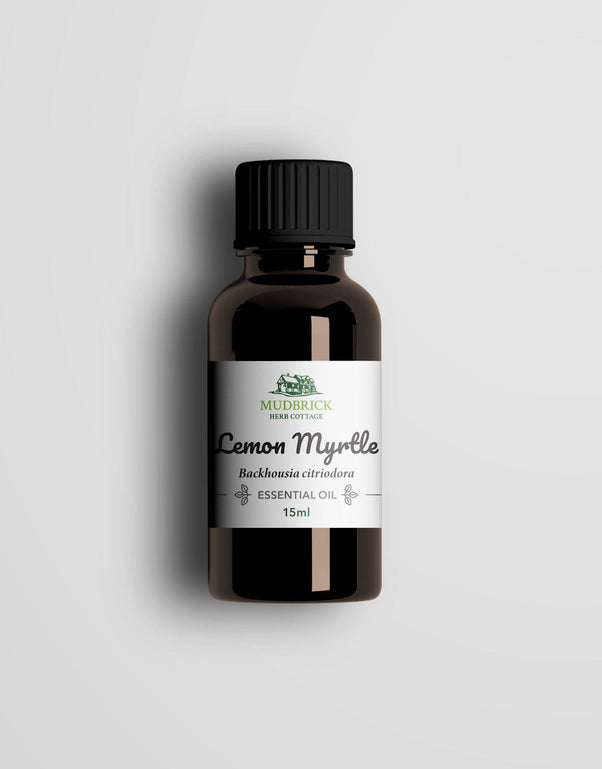
Indigenous Australians have used lemon herb as a remedial and culinary herb for hundreds of years. In addition to being the best essential oil for fighting germs, lemon myrtle also has uses in skincare and as a calming agent.
What it does
Lemon myrtle oil can help treat chest congestion, flu, cold, bronchitis, asthma, and sinus infections. It’s also effective at preventing colds and can treat acne, oily skin, and water warts. It can alleviate depressing thoughts and negative feelings and help improve sleep quality.
How to use
-
To fight germs - As the leaves start to change colours and the temperature drops, switch out your day to day diffuser oil for lemon myrtle. This will put your immune system on high alert, killing germs before they make you sick. If you’ve already come down with something, take a few deep breaths over the bottle; repeat one to two times each day.
-
For skin conditions - Pair with a carrier oil and rub directly onto the affected skin.
- For a calming effect - Massage the soles of your feet with 2 drops of Lemon myrtle oil blended with a carrier oil of your choice just before bed for a peaceful night of sleep. Or rub on your wrists and temples when you need to find balance during the day.
15. Tea tree - best for fighting bacteria and fungal infections

Tea tree has been used for centuries to fight back against ailments and serious illnesses. And for good reason, its antibacterial and antifungal properties should be reason enough to add it to your medicine cabinet. But it can do more than just fight infection.
What it does
Tea tree oil kills many bacteria and fungi, meaning it can be used to treat athlete’s foot, psoriasis, and acne. Its antibacterial properties make it an ideal ingredient for homemade hand sanitizers and all-purpose cleaners. You can also use tea tree to reduce dandruff or as a natural mouthwash or deodorant.
How to use
-
To fight infections - Mix with carrier oil and apply the mixture to the infected skin, dabbing gently with a cotton swab.
-
To prevent infections - Make your own hand sanitizer by mixing a few drops of tea tree oil with ethyl alcohol or a topical antifungal mixture with tea tree and a carrier oil.
-
For cosmetic reasons - Add 1-2 drops to your shampoo or buy a pre-made tea tree shampoo to reduce dandruff. For oral care, add 1 drop to a few tablespoons of coconut oil, then swish around in your mouth for 30 seconds before spitting it out. Do not swallow.



